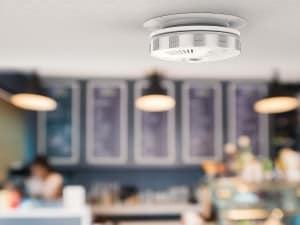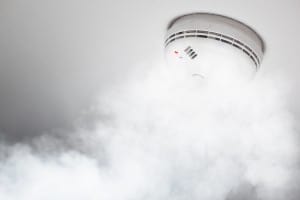Central Air Conditioning versus Ductless Split Air Conditioning System
July 14, 2017Prepare Your Heating System for the Winter Months
November 30, 2017Carbon monoxide is a colorless, odorless and poisonous gas that is produced when carbon burns with insufficient air. Often produced by a heating system that has not been well maintained or is not working properly, carbon monoxide may be released into the air of a home causing deadly results.
According to the National Fire Protection Association (NFPA), “Carbon monoxide is harmful when breathed because it displaces oxygen in the blood and deprives the heart, brain, and other vital organs of oxygen. Large amounts of CO can overcome you in minutes without warning—causing you to lose consciousness and suffocate.”

One of the top causes of carbon monoxide leakage and poisoning is a faulty heating system. Sources of carbon monoxide include gas and oil boilers, gas and oil furnaces, wood fireplaces and wood burning stoves. There are several things that you can do to keep your family safe from CO poisoning and one of the most important things is to have your heating system, water heater, and any other gas, oil, or coal burning appliances serviced by a qualified technician every year.
Having your heating system checked by a certified professional every year can save lives. Scheduling regular inspections and maintenance can ensure that your heating system is running properly and efficiently, and if needed, any repairs can be performed before any carbon monoxide can be released into the air that your family breathes.

As the cold weather approaches on Long Island – snow often arrives. Homeowners should remember that during and after a snowstorm they should make sure that the outdoor vents for the dryer, furnace, stove, and fireplace are always clear of snow and ice accumulation.
Excellent Air Conditioning and Heating Services Inc. can inspect and perform any necessary maintenance on your heating system to ensure that it is functioning properly. They can also perform carbon monoxide testing and test your system for any dangerous leaks, to ensure the safety of your home and family. Give them a call before the winter season begins at 631-427-0677.
